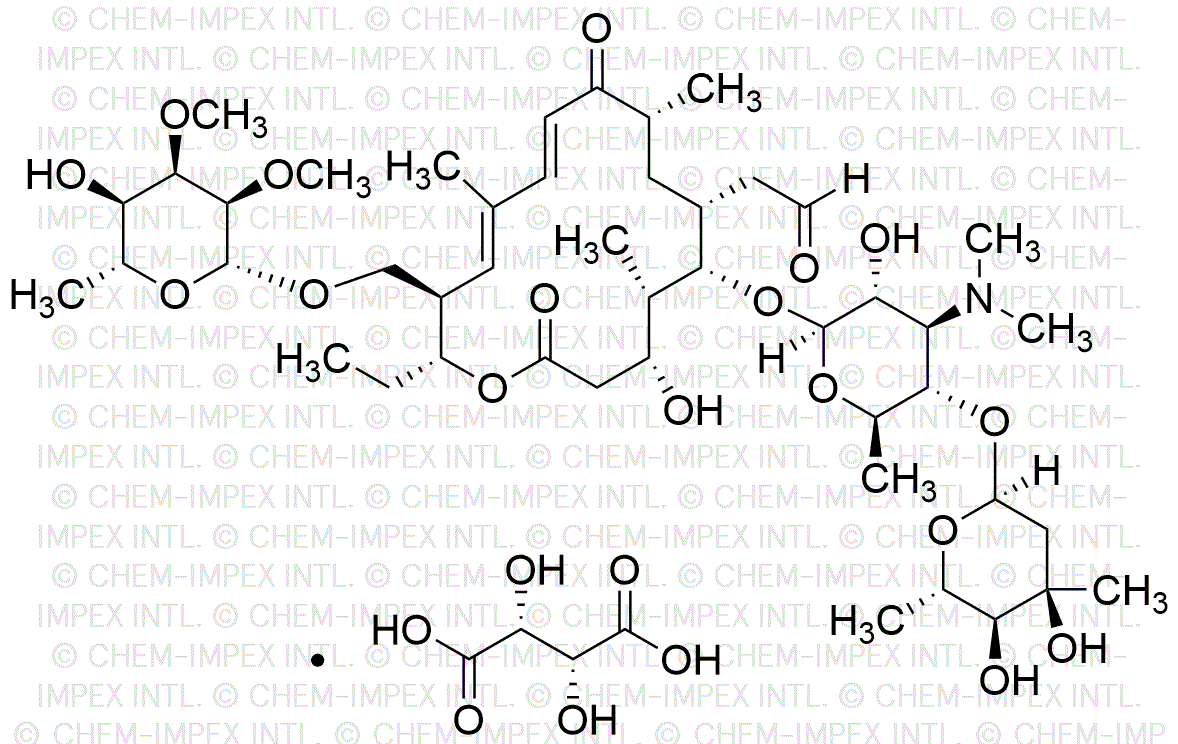Tylosin tartrate is widely utilized in research focused on
- Veterinary Medicine: Commonly used as an antibiotic in livestock to treat and prevent bacterial infections, enhancing animal health and productivity.
- Pharmaceutical Development: Serves as a model compound in drug formulation studies, helping researchers understand the pharmacokinetics and efficacy of similar antibiotics.
- Food Safety: Employed in studies assessing antibiotic residues in animal products, ensuring compliance with food safety regulations and consumer health standards.
- Biotechnology: Utilized in the production of recombinant proteins, where its antibiotic properties help maintain a sterile environment during cell culture processes.
- Research on Antimicrobial Resistance: Acts as a key compound in studies aimed at understanding and combating antibiotic resistance, providing insights into the effectiveness of existing antibiotics.
Informations générales
Propriétés
Sécurité et réglementation
Applications
Tylosin tartrate is widely utilized in research focused on
- Veterinary Medicine: Commonly used as an antibiotic in livestock to treat and prevent bacterial infections, enhancing animal health and productivity.
- Pharmaceutical Development: Serves as a model compound in drug formulation studies, helping researchers understand the pharmacokinetics and efficacy of similar antibiotics.
- Food Safety: Employed in studies assessing antibiotic residues in animal products, ensuring compliance with food safety regulations and consumer health standards.
- Biotechnology: Utilized in the production of recombinant proteins, where its antibiotic properties help maintain a sterile environment during cell culture processes.
- Research on Antimicrobial Resistance: Acts as a key compound in studies aimed at understanding and combating antibiotic resistance, providing insights into the effectiveness of existing antibiotics.
Documents
Fiches de données de sécurité (FDS)
La FDS fournit des informations de sécurité complètes sur la manipulation, le stockage et l’élimination du produit.
Spécifications du produit (PS)
Le PS fournit une description complète des propriétés du produit, notamment sa composition chimique, son état physique, sa pureté et les exigences de stockage. Il détaille également les plages de qualité acceptables et les applications prévues du produit.
Certificats d'analyse (COA)
Recherchez des certificats d'analyse (COA) en saisissant le numéro de lot du produit. Les numéros de lot et de lot se trouvent sur l'étiquette d'un produit, après les mots « Lot » ou « Lot de fabrication ».
Numéro de catalogue
Numéro de lot/série
Certificats d'origine (COO)
Ce certificat d'exploitation confirme le pays dans lequel le produit a été fabriqué, et détaille également les matériaux et composants utilisés et s'il est issu de sources naturelles, synthétiques ou autres sources spécifiques. Ce certificat peut être requis pour les douanes, le commerce et la conformité réglementaire.
Numéro de catalogue
Numéro de lot/série
Fiches de données de sécurité (FDS)
La FDS fournit des informations de sécurité complètes sur la manipulation, le stockage et l’élimination du produit.
DownloadSpécifications du produit (PS)
Le PS fournit une description complète des propriétés du produit, notamment sa composition chimique, son état physique, sa pureté et les exigences de stockage. Il détaille également les plages de qualité acceptables et les applications prévues du produit.
DownloadCertificats d'analyse (COA)
Recherchez des certificats d'analyse (COA) en saisissant le numéro de lot du produit. Les numéros de lot et de lot se trouvent sur l'étiquette d'un produit, après les mots « Lot » ou « Lot de fabrication ».
Numéro de catalogue
Numéro de lot/série
Certificats d'origine (COO)
Ce certificat d'exploitation confirme le pays dans lequel le produit a été fabriqué, et détaille également les matériaux et composants utilisés et s'il est issu de sources naturelles, synthétiques ou autres sources spécifiques. Ce certificat peut être requis pour les douanes, le commerce et la conformité réglementaire.


